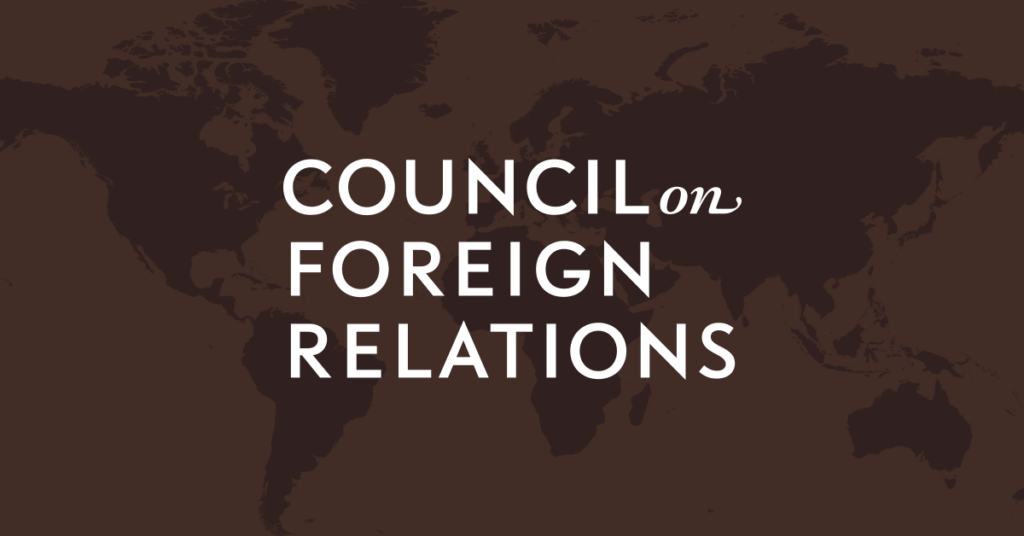Preparing future generations is an essential step in the fight against climate change. It’s time to treat it like one.
In 1957, the Soviet Union launched Sputnik into orbit. With this one small satellite, the Soviets announced the opening of a deadly new frontier in global competition—one in which the United States was starting on the back foot. Policymakers and educators understood that this new space race was a generation-spanning contest, in which the United States’ ability to compete depended on an educational system that could adequately prepare students to meet the moment. Today, climate change presents another new frontier, one in which the United States also finds itself lagging behind in critical ways, risking comparably grave consequences. If the United States is to meet this century’s moment, it will need to take steps every bit as ambitious as those in Sputnik’s wake.

Those steps were nothing less than transformational. Sputnik jolted the United States into a new era for science and math education. Policymakers poured resources into schools. Within a year of the launch, Congress passed the National Defense Education Act, which infused science and math classrooms with $500 million over the following decade for books, classroom and laboratory equipment, and professional development for teachers. The National Science Foundation, which funded curriculum development and teacher training institutes, saw its budget balloon from $40 million in 1957 to more than $500 million in 1968.
Schools also transformed the way students were taught, raising educational standards and adopting new curricula for science and math classes. Teachers began assigning increased amounts of homework. In 1962, 23 percent of high school students reported doing more than two hours of homework a night, more than double the proportion from a decade earlier.
Not all of these reforms took root. Some new curricula—notably the so-called New Math—met criticism from students, teachers, and parents and soon fell out of use. Even in the face of failed experiments, however, the country’s attention and energy remained fixed on preparing future generations in a way that it had never been before.
Now, in the face of climate change, U.S education needs a similar burst of energy. The world is on pace to warm 3 degrees Celsius by the end of this century—far beyond the goals set in the 2015 Paris Climate Agreement and severe enough to put billions of dollars and countless lives at risk due to extreme weather, humanitarian disasters, crop losses, and failing ecosystems. Even with the kind of immediate and steep cuts to greenhouse gas emissions that would be required to meet the Paris Agreement’s goals, at least some additional warming—beyond the 1 degree Celsius we are experiencing today—is inevitable.
If winning the space race demanded engineers, physicists, and mathematicians, addressing climate change will demand far more. Climate change is a multivariate problem, encompassing but ranging far beyond the engineering challenge of installing more renewable energy. It requires political acumen to build support for reducing emissions and providing aid to those already affected. It requires social understanding to grasp the myriad ways climate change is shaping societies today—compounding inequalities, driving increased migration, and even increasing the risk of conflict. It requires great emotional acuity to cope with the profound grief and anxiety that climate change can elicit. It requires, in other words, a broad, multidisciplinary environmental literacy that spans not only science and math but also social sciences, civics, and the arts.
Unfortunately, a mobilization of resources and reforms equal to this new Sputnik moment has not materialized, with predictable consequences for American classrooms. In a 2022 survey, the North American Association of Environmental Education (NAAEE) found that although three quarters of K–12 teachers agreed that schools had a responsibility to teach about climate change, less than 40 percent included the topic in their lessons. This gap between teacher interest and student outcomes is even more pronounced outside of science classrooms: Although a majority of teachers support integrating climate education across subjects, climate education primarily occurs in science classrooms, with only a quarter of social studies teachers reporting that they cover the topic.
This discrepancy can be traced directly back to a lack of financial and curricular support for climate education. Fewer than half of the teachers surveyed felt prepared to teach about climate change, with most citing lack of resources and formal curriculum as reasons why. Compounding these issues, many teachers and administrators worry that the issue is too politically sensitive for the classroom. To address these challenges, educators need nonpartisan, trustworthy, and accurate resources and professional development on climate change.
The Council on Foreign Relations’ educational arm, CFR Education, is committed to helping fill that need. For over a century, CFR has provided policymakers and the public with nonpartisan expertise on a wide array of foreign policy issues. Recognizing that climate change is a global issue with major foreign policy implications, CFR Education has turned its attention to climate change, developing a comprehensive collection of multimedia learning resources and companion teaching resources on the issue. Produced in close collaboration with climate experts within the council, these resources cover not just the foundational science behind climate change but also the political, economic, and social dimensions of the issue, as well as the opportunities and obstacles that societies face in addressing it.
In the absence of the kind of post-Sputnik investment that American education needs, organizations like Ten Strands have shouldered a considerable burden in advancing climate education in the state of California. CFR Education’s materials can further that mission—in California and around the country—by enabling students and teachers across disciplines to engage confidently with this critically important topic.
The first beneficiaries of reforms during the space race saw anxiety over falling behind transform into action. Just over a decade after Sputnik made its first orbit, the world witnessed US astronauts land on the moon, signaling a commanding victory in the space race. Now the country faces another pivotal challenge in which US national security again depends on the preparation of future generations. CFR Education’s climate collection seeks to address a crucial reality: It’s time to recognize education as an irreplicable force in the fight against climate change and equip students and instructors with the tools they need to meet the moment.
Learn More About CFR Education Climate Resources:
CFR Education’s climate collection comprises more than thirty multimedia learning resources and companion teaching resources, divided across six distinct themes:

- Understanding the Causes of Climate Change
- How to Mitigate Climate Change
- How the World Can Adapt to Climate Impacts
- Climate Policy: Opportunities and Obstacles
- Energy Challenges in the Face of Climate Change
- What Is Geoengineering?
In this collection, students will find engaging and approachable lessons to suit those in middle school, high school, and higher education that focus on how climate change affects nearly every aspect of society, what is being done to address it, and what challenges remain. Instructors, meanwhile, can equip themselves to bring climate change into their classrooms with lesson plans, discussion guides, simulation activities, and professional development events and webinars.


